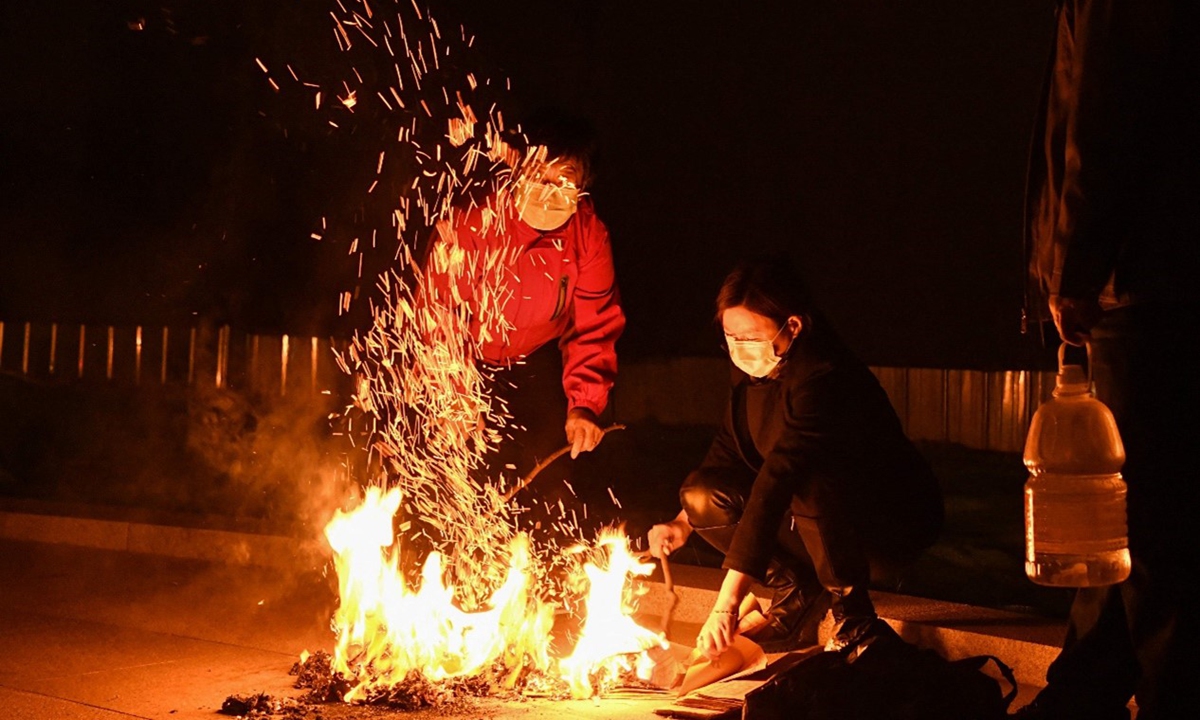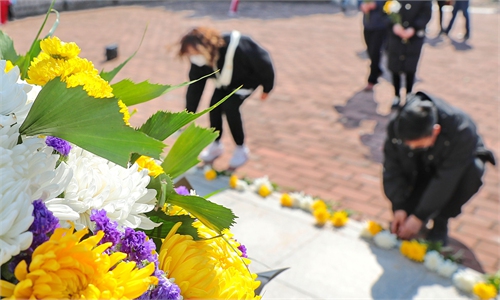Prohibition of manufacturing, selling joss paper in Nantong before Qingming Festival sparks heated debate

People burn joss paper on a sidewalk on the eve of Qingming Festival in Beijing on April 3, 2021. Photo: VCG
Authorities of Nantong, East China's Jiangsu Province, issued a release on Monday banning the manufacture and sale of joss paper and other "superstitious" funerary products by any unit or individual, sparking a heated debate as the traditional Chinese Qingming Festival approaches.
The Nantong authorities referred these items, which are typically burned as offerings to the deceased, as "superstition funeral supplies." They stated that individuals who violate the regulation will have these items confiscated and may face a fine ranging from one to three times the amount of the manufacture or sale.
Offenders may also be subject to administrative penalties or be held criminally liable in accordance with the law.
Qingming Festival will fall on April 4 this year. People traditionally burn joss sticks and joss paper to pay tribute to the dead and worship their ancestors.
The decision by Nantong authorities has sparked a heated debate. The staff members of the service hotline "12345" in Nantong, a channel for people to offer suggestions on city governance, said on Monday that they received numerous phone calls seeking clarification on the decision, with some callers disagreeing with the regulation, calling it "one size fit for all." The staff members said they have reported the callers' opinion to relevant authorities, but noted the policy hasn't been adjusted at this time.
Some netizens also called the policy disrespectful to tradition and lacking compassion.
Later, in a move to defend their actions, the local civil affairs bureau said that they had not prohibited the use of items such as joss paper. It said that the public discussion was caused by a misunderstanding of the government's regulation. "We only banned production and sale of such items, not their use." It emphasized the decision was made out of consideration for spiritual civilization construction and environmental protection.
Authorities in Nantong have also published an initiative suggesting that people adopt green and environmentally friendly ways to pay tribute to their ancestors, including offering flowers, planting trees in memory of the decreased, writing messages, and memorializing them through the internet.
China National Radio commented that burning joss paper is just a part of traditional rituals, similar to offering flowers and other expressions of affection. Local officials could call for people to honor their ancestors through offering flowers, planting trees and other environmentally friendly ways, but they shouldn't prohibit the burning of paper, and even penalize merchants who engage in manufacturing and selling joss paper in a simplistic and crude manner using "feudal superstitions" as a reason, China National Radio noted.
According to previous reports, many incidents caused by illegal wildfires and paper-burning at gravesites have frequently occurred across China during Qingming holidays every year. Some places in China have already introduced regulations prohibiting the sale of joss paper in accordance with local funeral management regulations.
Global Times


